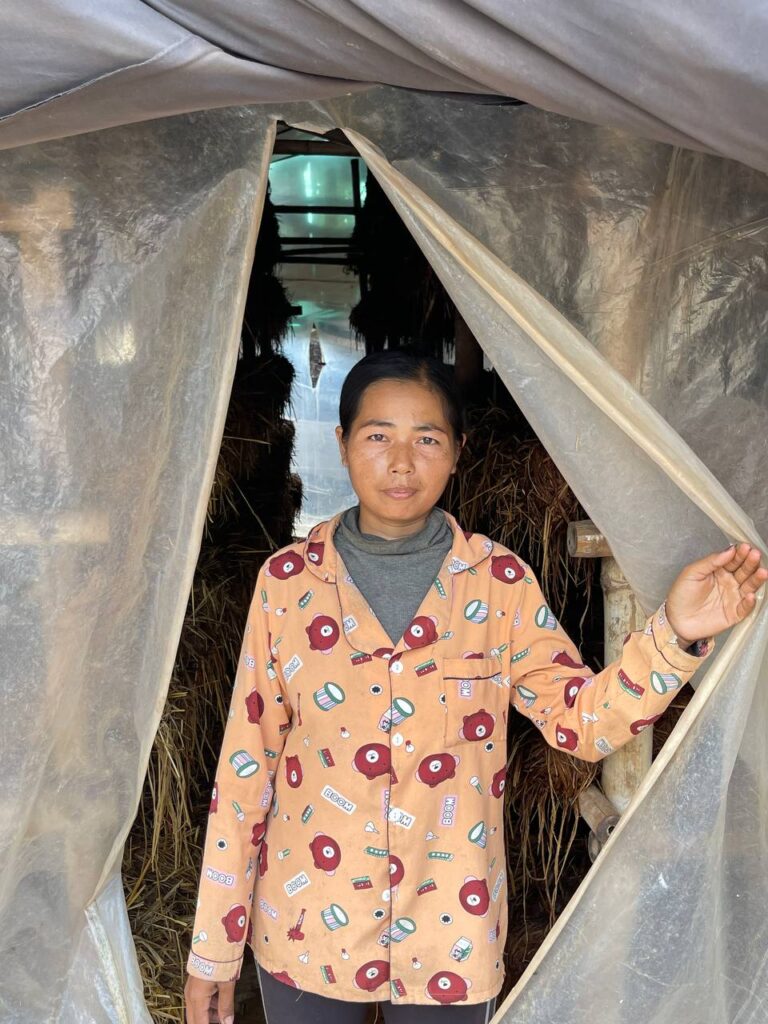
Mushroom Sales Lead to Improved Sanitation
Mai started her first mushroom house in 2018. She decided to invest in growing mushrooms because she saw that her neighbor was earning a decent monthly income from mushroom production with instruction and support from World Hope and local partner Thera Metrey.
Mai and her husband, Heng, and their four daughters have seen their life improve because of mushroom sales. She got married at 20, and she and Heng scratched out a poor living by growing rice and cassava, and raising a few cows. Money was always tight, and sometimes they didn’t have enough to buy food to supplement what they grew. It was hard to keep the children in school and, lacking a toilet, they were at greater risk for illness. During the break time from rice farming, they often had to resort to doing day labor like harvesting cashews in the village or even migrating to another province to find work.
Growing mushrooms finally gave them a stable monthly income. They were able to get a loan to buy more land and build a toilet, which immediately improved their health. Most importantly, the children can go to school. Mai and Heng are hoping to expand their mushroom production.
As Mai points out, the mushroom program improves the entire community. The farm families have better livelihoods, and even those not involved in the program can earn a living by collecting and selling them straw for the substrate, or helping in the mushroom houses.
The Cambodia East program is continuing into a new phase programming in an expanded area and is now known as the Cambodia Kampong Cham & Tbong Khmum Program
Led by World Hope International
